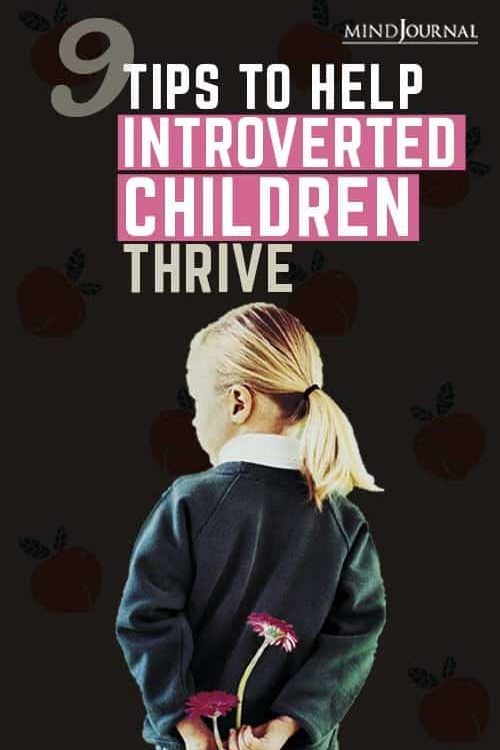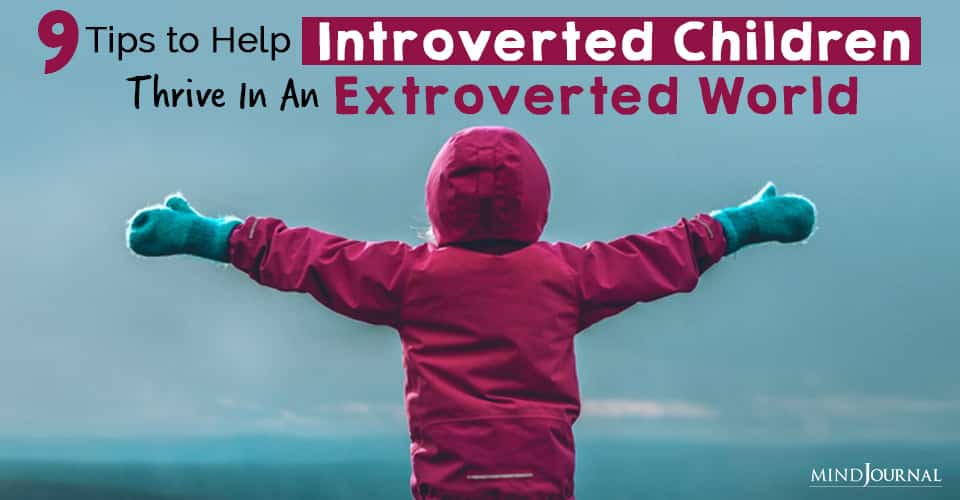Introverted children are unique, but sometimes they have a hard time dealing with everything that goes on around them, especially in school. With stereotypes constantly plaguing them, they find it challenging to navigate their way through the different aspects of school life.
Introverted children have a lot to offer the world. Often creative, passionate, and deep-thinking, introverted children bring a different type of energy and social dynamic to home and school. Frequently mischaracterized as shy, they interact with the world in a reserved and careful manner.
For our introverts, this can sometimes lead to social difficulties in schools that often cater to the more extroverted child. Understanding how to help the introvert begins with a deeper understanding of what introversion means.
Extroverted children differ from their introverted counterparts in everything from their energy patterns to communication styles to learning preferences. Extroverts often rely on active dopamine-based energy patterns, communication that is active and chatty, and learning that is action-oriented.
Introverts, on the other hand, approach everything from a more reserved energy pattern. They renew through solitude, prefer to think first and speak second and learn best through contemplation and watching4. These differences often lead to some struggles for our introverted children as they enter the extrovert-dominate social environments of school and work.
Fortunately, there are specific things parents can do to help quiet children build on the strengths of their temperament. The nine tips focused on preschool and elementary age children provide parents with everything needed to help introverted children embrace their many gifts and thrive.
Read 11 Superpowers of an Introverted Child
Here Are 9 Tips That Can Help Introverted Children Thrive

Preschool (age 3-5)
Preschool is typically the time when children begin to develop fundamental social skills by engaging in cooperative play and learning the skills of taking turns, listening to each other, initiating play, and expressing emotions in positive ways. Introverts may struggle with many aspects of the above skills.
While they typically excel in listening, taking turns, and problem-solving skills, they may struggle with expressing emotions, initiating interactions with others, and engaging in cooperative play.
The following tips focus on a few specific things parents can do to help introverted children nurture their social skills:
1. Teach children how to talk about their emotions.
Make “emotion” cards with your child and use them to assist your child in describing their feelings at the end of the day.
2. Encourage your introverted child to develop 1 or 2 close friendships.
If your child is struggling with that, allow them to develop social skills through his or her imaginative play. Listen to the stories they create and compliment the appropriate behavior (“I like the way you asked the bear to come and have tea”). Your children will begin to translate these skills to other children as they mature.
3. Model cooperative play with your children.
Sit down and play games like Candyland, Chutes, and Ladders, or card games. Review the social “rules” before initiating a game. Verbally praise your children when they demonstrate good social skills, like taking turns or complimenting each other. Redirect kids when they forget one of the “rules.”
Read 10 Signs Your Child is an Old Soul
Grade school (age 5-11)
Childhood marks a period of significant growth for children. Learning things like building friendships, problem-solving, collaboration, and social rules can be a challenge for some children, especially introverts. Recess and lunch can feel overwhelming for these children.
The following tips can help both parents and teachers support social and emotional learning in introverted children:
1. Teach introverted children how to ask for help…
In various situations, including requesting help from a teacher, asking a friend for help, and asking for help in a store.
2. Encourage creative problem-solving.
Model and practice ways to resolve sticky social situations with your children. Practice this often during the beginning of a new school year.
3. Review the expectations and routines at home regularly.
Review school expectations at the start of each new year. Establish consistent home-school communication and speak with the teacher about your child’s temperament early.
4. Help your introverted children find respite during the day.
Teach them about their need for calm moments, and teach them how to get it. Reading (at appropriate times), going to the library or visualizing their favorite place can all be ways for introverted children to carve out a few moments of peace during the day. Help your children figure out which methods work for them and teach them when they can use the skills during the school day.
5. Work with the teacher to establish “safe” zones at school—places children can go when they are feeling overwhelmed at lunch or recess.
These places can include the teacher’s room, the library or media center, or even the nurse’s office. Having a “safe” place can help your child learn to balance their need for solitude and recharge on harder days.
6. Teach your child about their introversion and what it means.
Ask them to describe what it “feels” like at the end of the day. Develop a routine around ways to renew. Have your introverted children write down the list and post it somewhere.
Read 25 Characteristics Of An Indigo Child
Introverted children have a lot to offer. Deep thinkers and highly creative, they can grow to become the influential innovators needed in today’s workforce. Building a strong foundation in which introverted children can flourish is a great way to help bring out the best in these quiet kids.
Written By Christine Fonseca
Originally Appeared In Psychology Today
If you have an introverted child, then keep in mind these pointers, and help them wholeheartedly in being themselves. Tell them that being introverted is not a bad thing, and being a little bit different is something they should be proud of. Parents can go a long way in helping their introverted children accept and love themselves.












Leave a Reply